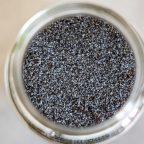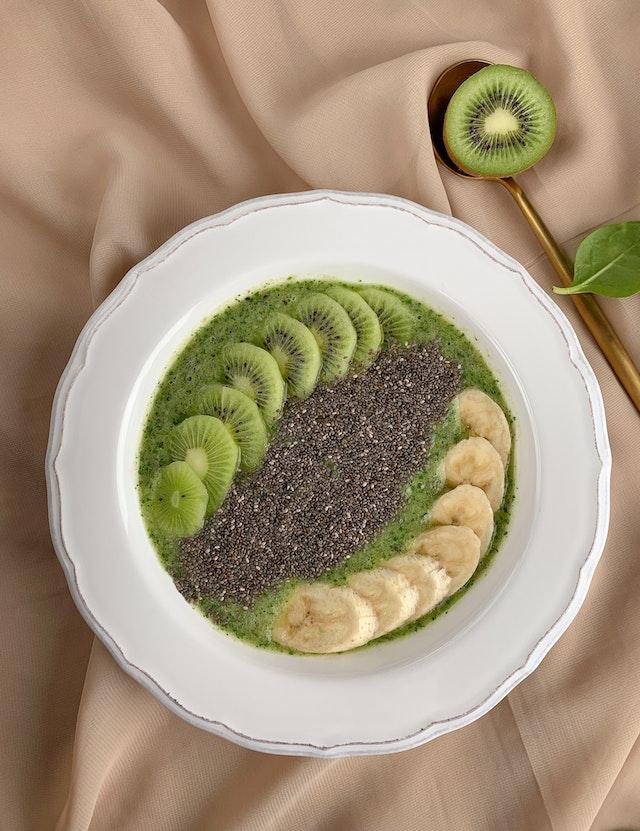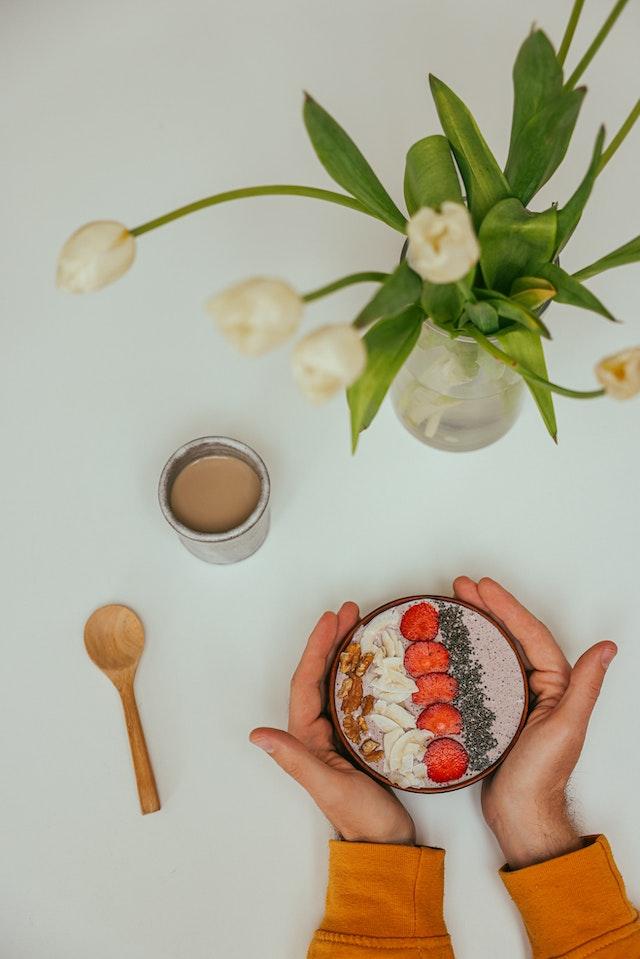Posts Tagged ‘chia seeds and diabetes’

Health Benefits of Chia Seeds
Chia seeds have many health benefits and especially for people with diabetes. Magnesium, omega-3 fatty acids, fiber, and antioxidants are all found in Chia seeds.
Type 1 diabetes and type 2 diabetes complications can be reduced using these elements found in the chia seeds. Almost 10 grams of fiber is found in one ounce (28.35g) of dried chia seeds.
Chia seeds are incredibly rich in nutrients despite being small. These seeds have been touted for their health benefits for centuries and it was a staple in the ancient Aztec and Maya diets.
Further, improving blood sugar management, promoting heart health, and supporting strong bones are some of the beneficial properties of chia seeds such as antioxidants, minerals, fiber, and omega-3 fatty acids.
Moreover, they can be used in many recipes, thanks to the versatile nature of the chia seeds.
There are multiple health benefits of chia seeds. Here are some of the benefits supported by science.
Highly Nutritious
From the plant Salvia hispanica L, chia seeds are tiny white or black seeds that are believed to be native to Central America. Apart from being used for medical purposes, religious rituals, and cosmetics, Aztec and Mayan civilizations used the seeds in their diets historically.
Chia seeds are enjoyed by people all over the globe currently. Just like the belief that has been backed by modern science, Chia seeds were viewed as highly nutritious in ancient civilizations.
Chia seeds contain the following in just 1 ounce (28 grams or 2 tablespoons)
- 138 calories
- 4.7 grams protein
- 9.7 grams fat
- 5 grams of alpha-linolenic acid (ALA)
- 11.9 grams carbs
- 14% of the Daily Value (DV) calcium
- 23% of the DV magnesium
- 12 % of the DV iron
- 20% of the DV phosphorus
- 12% of the DV zinc
- 15% of the DV vitamin B1 (thiamine)
- 16% of the DV vitamin B3 (Niaci)
Considering that is it for just a single serving of about two tablespoons, this nutritional profile is particularly impressive.
May Reduce Blood Sugar Levels
Because of the fiber content and other beneficial compounds in chai seeds, consuming them may help with blood sugar regulation. High blood sugar levels may be experienced by people with diabetes.
An increased risk of several complications, including heart disease is consistently associated with high fasting blood sugar levels.
Additionally, chia seeds may improve insulin sensitivity as per the promising findings from animal studies. Especially after meals, chia seeds may help to stabilize blood sugar levels.
Some older studies have shown promising results despite the sparse research on humans.
Compared with eating bread without chai seeds particularly older research from 2010 and 2013, suggests that eating bread containing chia seeds helps lower post-meal; rises in blood sugar among healthy adults.
Loaded with Antioxidants
There are excellent quantities of antioxidants in chia seeds hence making them an excellent source.
Apart from neutralizing reactive molecules known as free radicals, which can damage cell compounds if they build up in your body, antioxidants may also benefit your body by protecting the sensitive fats in chia seeds from going rancid.
For example, diseases like cancer and aging are contributed by free radical damage.
Chlorogenic acid, caffeic acid, myricetin, quercetin, and kaempferol are the specific antioxidants found in chia seeds. As well as anticancer properties, the specific antioxidants in chia seeds may all have protective effects on your liver and heart.
For example, while caffeic acid features anti-inflammatory effects, chlorogenic acid may help lower blood pressure.
May Support Weight Loss
Those trying to lose weight may benefit from the fiber and protein in chia seeds. Close to 10 grams of dietary fiber is found in 28 grams (One ounce) of chia seeds. Therefore, this means by weight there is a whopping 35% of fiber.
Eating fiber may play role in preventing overweight and obesity as per suggestions from some studies despite research on this topic being mixed.
Moreover, appetite and food intake reduction could be aided by protein in chia seeds. It may be a useful addition to a balanced, nutritious diet if you are trying to lose weight despite adding chia seeds to your diet being unlikely to cause weight loss on its own.
May Lower Your Risk of Heart Disease
Consuming chia seeds may reduce your risk of heart disease given that they are high in fiber and omega-3s. Total and LDL (bad) cholesterol in your blood lowering could be aided by soluble vitamins, the kind primarily found in chia seeds.
Additionally, decreased heart disease risk has been linked to consuming ALA, the omega-3 fatty acid in chia seeds. Inconclusive results have been had in the studies specifically examining the connection between chia seeds and heart health.
Including high triglyceride and oxidative stress levels, chia seeds can lower certain heart disease risk factors as shown in some rat studies. Blood pressure in people with hypertension, or high blood pressure, which is a strong risk factor for heart disease can significantly be reduced using chia seeds, as found in a few human studies.
Contains Many Important Bone Nutrients
Several nutrients that are essential for bone health are found in high quantities in chia seeds.
These nutrients include:
- Calcium
- Phosphorus
- Magnesium
Getting enough of these nutrients is important for maintaining good bone mineral density, which is an indicator of bone strength as per suggestions from multiple observational studies.
Further, a role in bone health may be played by ALA in chia seeds. Increased bone mineral density could be associated with consuming this nutrient as per the findings from observational studies. Therefore, keeping your bones strong could be aided by regular eating of chia seeds.
Easy To Incorporate into Your Diet
Incorporating into your diet chia seeds is incredibly easy. So, you can add them to pretty much anything they taste rather bland.
Additionally, chia is a handy addition to recipes since you do not need to grind, cook, or otherwise prepare them. Apart from being added to oatmeal, pudding, smoothies, and baked goods chia seeds can be eaten raw, and soaked in juice.
Further, you can also use chia seeds in rice dishes, vegetables, yogurt, or cereal by sprinkling them on top. They can also be used as a binding agent as they work wonders in homemade fritters.
Furthermore, you can use them to thicken sauces and as an egg substitute thanks to their ability to absorb water and fat. They can also be turned into a gel when mixed with water.
If you eat too many seeds in one sitting, you might experience digestive side effects such as bloating or diarrhea especially if you are still not used to eating a lot of fiber. 0.7 ounces (20 grams or about 1.5 tablespoons) of chia seeds twice per day is the common dosage recommendation.
To prevent digestive side effects, remember to drink plenty of water.
The Bottom Line
Apart from being easy to prepare, chia seeds are also rich in minerals, fiber, antioxidants, and omega-3 fat. Ranging from weight loss to a reduced risk of heart disease, studies suggest that chia seeds have various health benefits. Before any firm conclusions can be made, more research involving humans is needed.
Consider incorporating chia seeds into your diet if you want to reap its possible benefits. You can also add chia seeds in smoothies, oatmeal, yogurt, baked goods, and many more since they are a great addition to them
FAQs
Do Chia Seeds Raise Blood Sugar?
Blood sugar levels can be significantly lowered using chia seeds as shown in some studies. The absorption of sugar in the blood is slowed down and the levels of blood sugar can decrease all this is because of the high amounts of fiber in chia seeds.
How Do Diabetics Drink Chia Seed?
Add thinly sliced pieces of lemon to it after soaking a tablespoon of chia seeds in a bottle of water. After that, consume the detox drink after letting it for around a minimum of an hour.
Helping to speed up weight loss, thanks to the antioxidants, micronutrients, and fiber that the detox drink is rich in. an excellent meal option is salads.
Can I Eat Chia Seeds Every Day?
As part of a healthy diet, chia seeds may provide you with multiple benefits. For chia seeds, there is no RDA. About five tablespoons which are around 50 grams can be safely eaten daily.
Do I Need to Soak Chia Seeds?
Soaking chia seeds does help to maximize the benefits, but in order to eat them, you do not necessarily have to soak these seeds overnight.
So, it is really worth leaving the seeds to soak overnight since chia seeds feature hydrophilic properties. The ability of chia seeds to soak water is due to their hydrophilic properties and this makes them so valuable to your body.
Do Chia Seeds Burn Belly Fat?
When someone is on a calorie-restricted and on exercise routine, using chia seeds helps in promoting weight loss but on their own, these seeds cannot burn fat.
Lost belly fat has been reported by many people drinking this drink made with lemon.
What Happens If You Drink Chia Seeds Empty Stomach?
When consumed on empty stomach every morning chia seeds have proven benefits. These seeds contain magnesium that helps to keep cortisol levels low, and in turn, uplifts your mood apart from having high levels of fiber, calcium, protein, and healthy fats.
Is it OK to Eat Chia Seeds Raw?
You can eat chia seeds raw despite many people preferring to soak them. On your smoothie or oatmeal, try grinding and sprinkling them.




